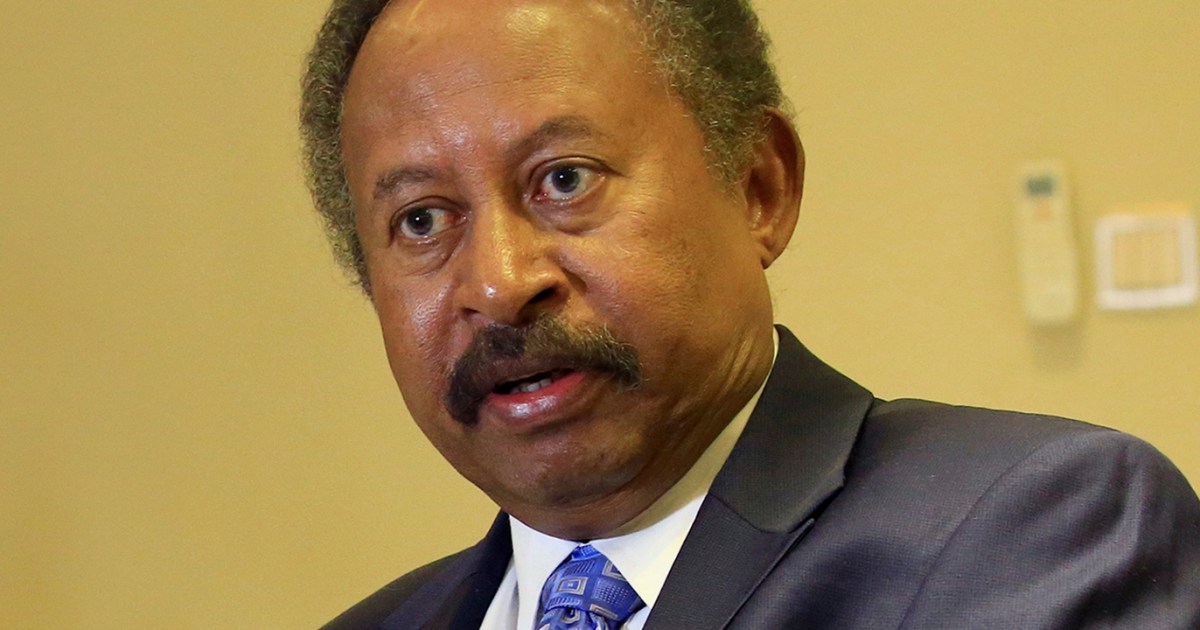Sudanese Prime Minister Abdullah Hamdok accused the United States of threatening the path to democracy by keeping his country on the list of state sponsors of terrorism.
The US sanctions were imposed on Sudan in 1993, due to the fact that it harbored al-Qaeda leader Osama bin Laden between 1993 and 1996.
In an interview with the Financial Times published on Sunday, Hamdok said that the sanctions "cripple our economy," warning that there is no guarantee that democracy will continue until the elections scheduled for 2022.
The Sudanese Prime Minister considered it unfair to treat Sudan as a pariah state, more than two decades after the deportation of bin Laden outside it, and the overthrow of the Sudanese in April 2019 of the Omar al-Bashir regime that hosted him.
He added that the Sudanese were never terrorists, and the former regime did that, indicating that the transfers are always turbulent, as they are not linear and they do not all go in one direction.
He went on to say that "keeping Sudan on the American list of states sponsoring terrorism threatens the path towards democracy, because we are isolated from the world," considering that removing Sudan from the list will change the data.
Conditions of normalization
Hamdok denied rumors about an expected normalization of relations between Sudan and Israel in return for being removed from the American list. He said in this context, "We want to deal with the two tracks separately."
The Sudanese Prime Minister estimated that the peace agreement signed recently with rebel groups will have a positive impact on the collapsing economy, mainly due to the reduction of the army's budget from 80% to between 10 and 15% of the budget, because Sudan no longer lives in a war economy.
On the other hand, he revealed that he had held discussions with the International Criminal Court about the possibility of trying Al-Bashir before this judicial body, referring to the possibility of establishing a "mixed court" in Sudan from judges of the International Court and other Sudanese.
But he considered the best option was to reform the Sudanese judicial system to take over the matter.
Sudan committed to hand over Al-Bashir to the International Criminal Court, to try him on charges of war crimes and genocide committed during the conflict in Darfur between 2003 and 2004, which left 300 thousand people dead and millions displaced.
The former Sudanese president is currently on trial in Khartoum, in connection with the coup that brought him to power in 1989.

